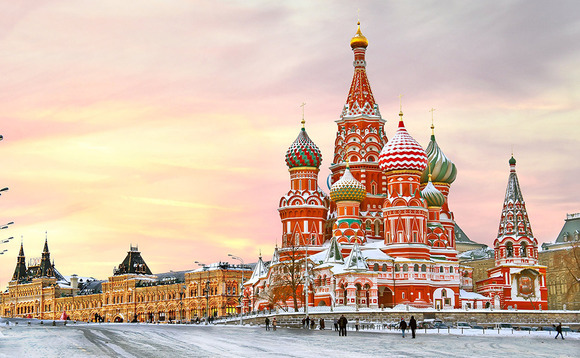
Russian private equity vacuum remains

Private equity activity in Russia was marginal even before the ongoing geopolitical and financial volatility, and good news for the market has been scarce. Mikkel Stern-Peltz checks the pulse of Russian private equity
Since the country's invasion of Ukraine and subsequent involvement with the war in Syria, political and financial volatility has been rampant in Russia and the latest word on the ground does not point to the market booming any time soon, despite a funding gap for the industry to fill.
"During the last couple of years, private equity from western firms has been particularly slow. There has not been as much activity as one would imagine," says Anton Sitnikov, partner and head of the corporate and M&A practice at Goltsblat BLP, the Russian arm of law firm Berwin Leighton Paisner.
While a huge surge in private equity activity was never likely as long as western sanctions are imposed on Russia, interest from non-western sources of capital has remained limited, as has special situations plays.
Sitnikov says Russia is still dominated by mainly local players and, though the market is seeing some interest from China, India and other Eastern jurisdictions, capital is coming predominantly from strategic investors rather than private equity. Chinese investors looking to their neighbours are generally state-owned enterprises instead of private equity firms, often targeting commodity assets or a route into the Russian market for their own products.
"In M&A and private equity in general, there were expectations there would be a lot of sell-side mandates for lawyers and investment bankers to find assistance and new investors for distressed situations assets – both Russian and global capital," says Sitnikov. "It is happening to some degree and we expect some growth in that, but surprisingly there is not as much desire to sell at the moment as one could have logically expected."
Two driving factors in that lack of appetite are a substantial gap between buy-side and sell-side price expectations, as well as the foreign exchange risk caused by the fleeting rouble – despite the market being a substantially mixed bag of currencies, with several dollar and euro-operating companies.
No rushing capital
The Russian public market has been a favoured route for local companies looking to raise capital in the past decade, but the stock exchanges have all but dried up as an avenue for fundraising.
"There is definitely not enough capital in the Russian market if you look at the demand from businesses" – Anton Sitnikov, Goltsblat BLP
Despite the market slowing down and being incapable of providing adequate capital for the whole market spectrum, there has not been any alternative capital streams rushing in to fill the void. "There is definitely not enough capital in the Russian market if you look at the demand from businesses," says Sitnikov.
"In many respects, that is related to the difficult geopolitical and economic situation. But, I think one of the reasons private equity was not particularly exploited in Russia when capital was available is because an IPO has always been a flashy thing that all owners consider doing at one point or another."
Unlike western markets, where private equity is often an early step for SMEs on a long-term journey to the stock market, Russian companies tend to skip that part of the process. "Companies here are often held by a closed group or small group of shareholders who decide to go straight to the public markets to raise capital, skipping the opportunity to work with PE investors, which is a shame," Sitnikov says. He believes it is one of the reasons behind an increase in de-listings from the Russian public bourses, as companies often are not ready to lift the burden that comes with being a public entity.
Looking ahead, Sitnikov sees some improvement that may help attractive private capital. The Russian government and regulators are making it more attractive for investors to bring their investments onshore, as well as putting a legal framework in place more akin to western models that offer investors better protection when putting capital at risk. However, he says it will be a few more years before the regulatory environment is entirely caught up.
Latest News
Stonehage Fleming raises USD 130m for largest fund to date, eyes 2024 programme
Sponsor acquired the public software group in July 2017 via the same-year vintage Partners Group Global Value 2017
Stonehage Fleming raises USD 130m for largest fund to date, eyes 2024 programme
Czech Republic-headquartered family office is targeting DACH and CEE region deals
Stonehage Fleming raises USD 130m for largest fund to date, eyes 2024 programme
Ex-Rocket Internet leader Bettina Curtze joins Swiss VC firm as partner and CFO
Stonehage Fleming raises USD 130m for largest fund to date, eyes 2024 programme
Estonia-registered VC could bolster LP base with fresh capital from funds-of-funds or pension funds









